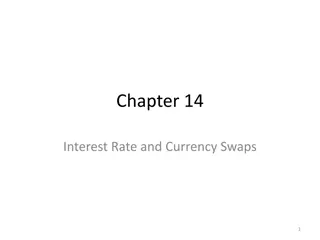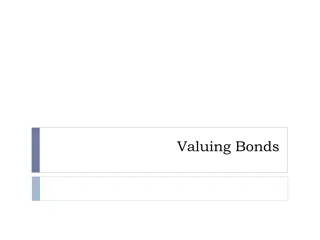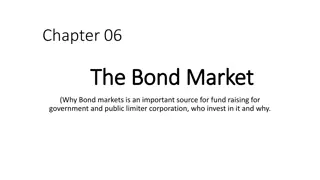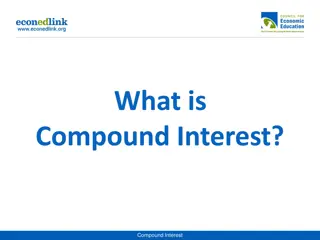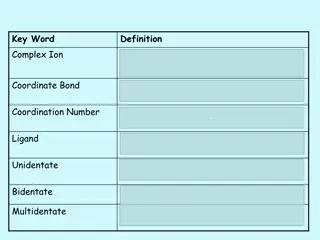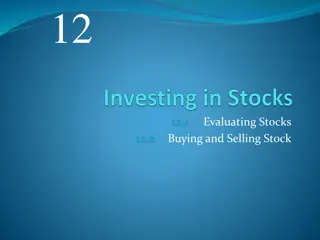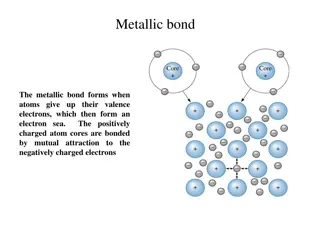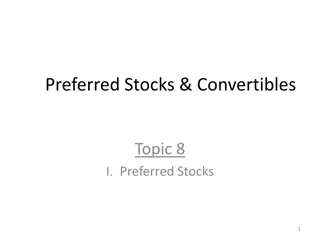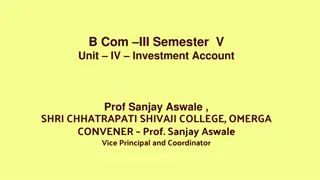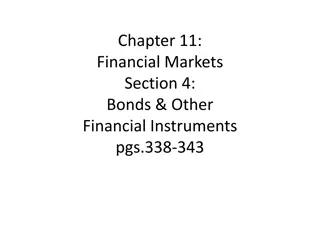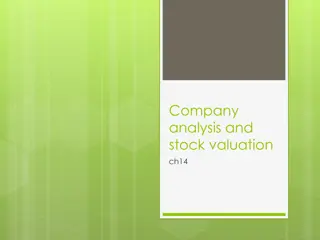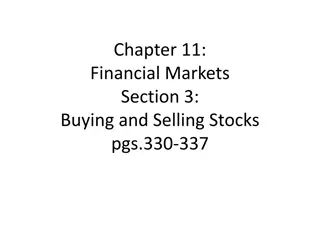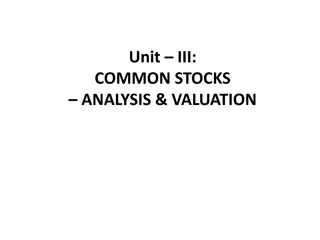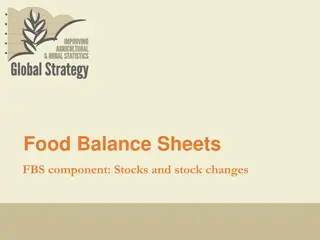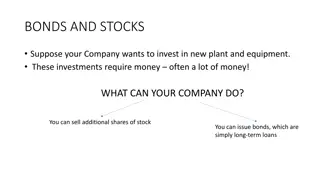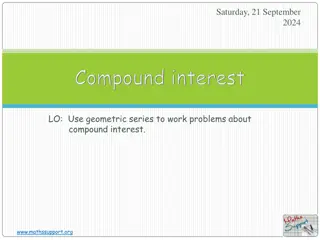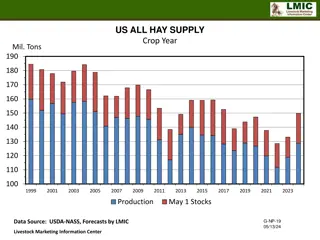Making Interest Work: Bonds vs. Stocks
Bonds and stocks are two main sources of investments, each with its pros and cons. Bonds offer lower risk and predictable returns, while stocks can provide higher returns but are more volatile. Understanding the differences can help you make informed investment decisions based on your risk tolerance and financial goals.
Download Presentation

Please find below an Image/Link to download the presentation.
The content on the website is provided AS IS for your information and personal use only. It may not be sold, licensed, or shared on other websites without obtaining consent from the author.If you encounter any issues during the download, it is possible that the publisher has removed the file from their server.
You are allowed to download the files provided on this website for personal or commercial use, subject to the condition that they are used lawfully. All files are the property of their respective owners.
The content on the website is provided AS IS for your information and personal use only. It may not be sold, licensed, or shared on other websites without obtaining consent from the author.
E N D
Presentation Transcript
Money Matters Topic 10- Investments Different ways to make interest work for you.
2 Main Sources of Investments Bonds Stocks
Bonds Bonds come in several forms from several source. Investor.gov explains it well. If we have time later, we can view this website. For now, understand that bond investing is an option.
Pros Less risky than stocks. Can still earn interest. Returns are more predictable than stocks. Some bond income may be partially tax free. The interest is almost always higher (and sometimes noticeably higher) than savings accounts.
Cons Bond holder can default or go bankrupt. Earnings may not outpace inflation. Pre-exit penalties. High returns unlikely.
Stocks Investing in companies. You lend the company money to expand in hopes that the company s value returns more than your investment.
Pros Returns can be much higher than bonds (Consider amazon investment in 1997 and what it would be worth today). Do not have a set timeframe for the investment. Can buy or sell anytime. Some pay dividends.
Cons Much more volatile than bonds. Values decrease frequently. Companies can go bankrupt and you lose the entire investment. Earnings are taxable. Returns are not guaranteed.
Stock/Bond Allocation Risk vs reward. In investing, the higher the risk, the higher the reward and the lower the risk, the lower the reward. Consider your tolerance of watching value decrease. Age dependent. The older you get, more bonds recommended. Do you have a guaranteed pension? What is the best blend? Depends on who you ask and how you will feel if your account decreases by a noticeable amount in a short time. If unsure, consider 60% stocks and adjust from there.
Risk vs Reward Continuum In his book The Investor s Manifesto, William Bernstein points out that in investing, high rewards can be realized only with high risk. This means stock investing. Low rewards are realized from low risk, which means bonds, CD s, or savings accounts. Stock markets frequently rise and fall, sometimes over extended periods of time. If you cannot tolerate down times, factor that into your financial decisions. Dave Ramsey, in his book The Total Money Makeover, suggests that successful investing requires you to do the opposite of what most people are recommending regarding investing.
Successful Investing Ultimate goal is buy low and sell high while avoiding companies that fail. Staying the course in difficult times is required. We will explore investing strategies in topic 12. Discuss anecdotes of known people who panicked when market fell. Google search the Great Depression. It didn t last forever.
Explore Investment Returns Google search investment calculators. Many exist, including calculator.net using the link https://www.calculator.net/investment- calculator.html


